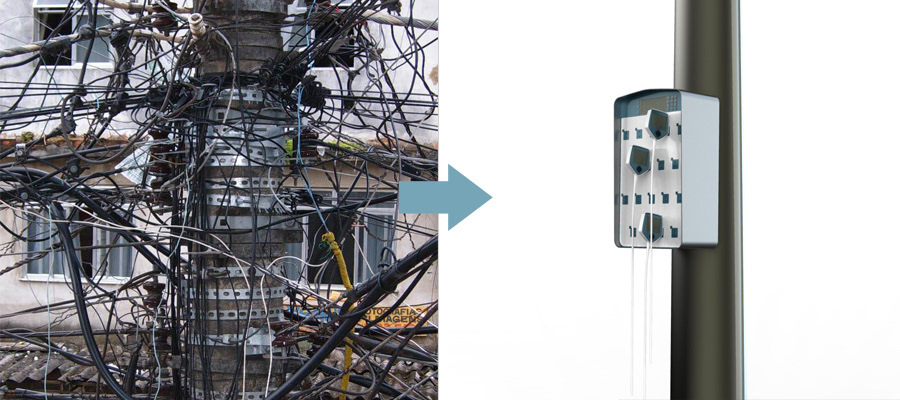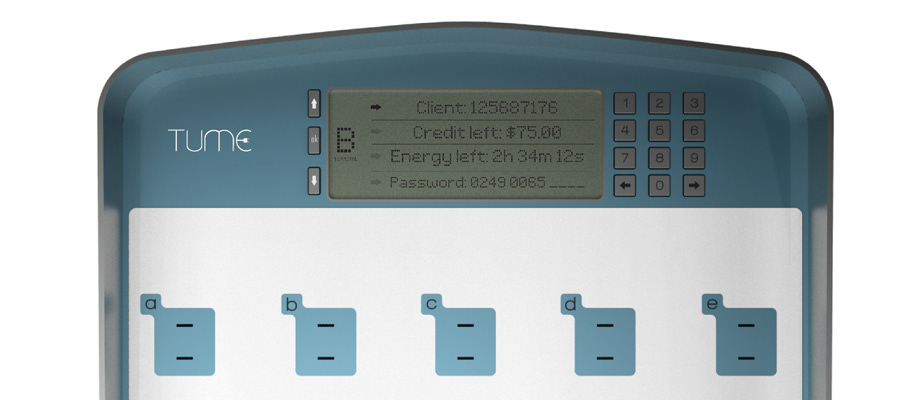TUME (Top-up mobile electricity)
Some type of sub-title
Some type of sub-title
Emerging economies´ governments are struggling in finding out ways to incorporate “informal businesses” into their scheme. Normally these governments take extreme measures to solve these problems.
One example are street markets. These trade centers have been crucial to social and economic growth in the developing world.
These kind of settlements carry problems like people stealing electricity, local power cuts, tax evasion and most important the death of people trying to peel the cables in order to plug into the lines.
The answer is not to take them off the streets but to make this activity safe, legal and prosperous with real solutions.
By introducing this system in busy trade areas, you reduce gang controlled electricity; stop the risk of electrocution accidents and make a fair competition with local established businesses which pay taxes.
TUME was born as an option for these kind of problems.
It consists of two basic elements. A portable device called TUME ACCESS and the charging base called TUME BASE.
TUME ACCESS enables the user to obtain electricity from the grid by acquiring credit. Credit can be obtained through top-up scratch cards, mobile phone SMS or credit cards in local shops. These tools let the user buy credit even in remote areas and right away without any bureaucracy.
The TUME BASE is where all the TUME ACCESS devices are plugged in order to get the service. They can be installed on lamp posts, bus stops, dense traffic areas, etc.
The concept is to make an electricity grid accessible to people on the streets for their everyday needs.
This system is not only limited to street vendors. Any person can buy a TUME ACCESS device and use it to recharge their mobile phones or laptops on the go or even plug a radio to enhance enhanc local coexistence on neighborhood
One example are street markets. These trade centers have been crucial to social and economic growth in the developing world.
These kind of settlements carry problems like people stealing electricity, local power cuts, tax evasion and most important the death of people trying to peel the cables in order to plug into the lines.
The answer is not to take them off the streets but to make this activity safe, legal and prosperous with real solutions.
By introducing this system in busy trade areas, you reduce gang controlled electricity; stop the risk of electrocution accidents and make a fair competition with local established businesses which pay taxes.
TUME was born as an option for these kind of problems.
It consists of two basic elements. A portable device called TUME ACCESS and the charging base called TUME BASE.
TUME ACCESS enables the user to obtain electricity from the grid by acquiring credit. Credit can be obtained through top-up scratch cards, mobile phone SMS or credit cards in local shops. These tools let the user buy credit even in remote areas and right away without any bureaucracy.
The TUME BASE is where all the TUME ACCESS devices are plugged in order to get the service. They can be installed on lamp posts, bus stops, dense traffic areas, etc.
The concept is to make an electricity grid accessible to people on the streets for their everyday needs.
This system is not only limited to street vendors. Any person can buy a TUME ACCESS device and use it to recharge their mobile phones or laptops on the go or even plug a radio to enhance enhanc local coexistence on neighborhood




